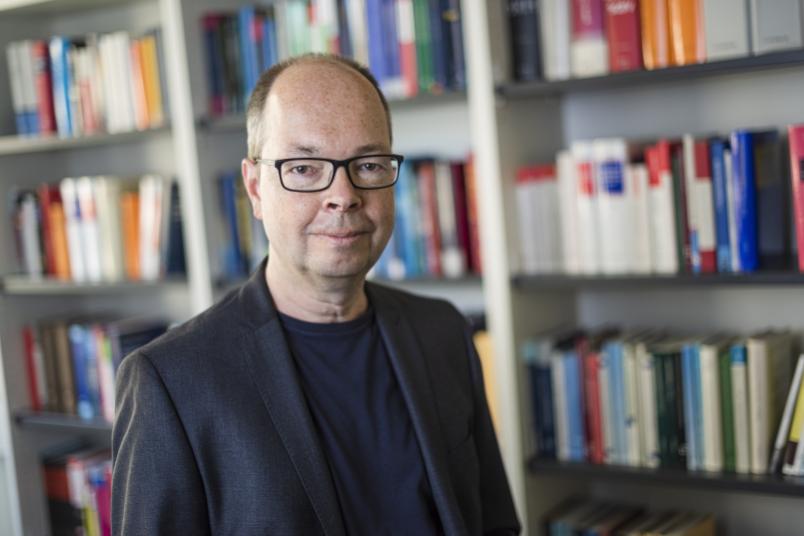
Law
Presenting an opportunity: public-private partnerships
Implementing the Sustainable Development Goals of the 2030 Agenda can’t be the task of governments alone.
There is a lot going on in the field of international health policy, not least due to the impact of the ongoing coronavirus pandemic. The United Nations’ 2030 Agenda for Sustainable Development, too, has been turning its attention to this issue for some years now. In addition to state or public institutions, private partners are increasingly participating in the implementation and shaping of goals in the field of international health policy in the form of public-private partnerships.
Cooperation between state and society
Public-private partnerships (PPPs) are hybrid organisational structures involving, on the one hand, public partners such as governments or public international organisations, for example the World Health Organisation, and private partners such as private companies, foundations or non-governmental organisations on the other. These partners cooperate on the international level, for example to fight diseases and to strengthen the health systems of developing countries. Even though such global partnerships are still a relatively new organisational concept, they have become increasingly important for international health policy as well as for other global policy fields in recent years. Accordingly, Goal 17 of the 2030 Agenda explicitly identifies them as potential implementation tools.
Professor Markus Kaltenborn’s research explores why public-private partnerships are of such great importance for the global society. At the Chair of Public Law, Financial Constitutional Law and Health Law, he studies questions of international health care and global social protection. He has been looking into legal issues of international health care for quite some time. “Public-private partnerships are important, because states often depend on cooperation with society in order to implement societal changes,” says Kaltenborn.

Governments shouldn’t miss the opportunity to cooperate with private institutions.
Markus Kaltenborn
There are a number of reasons for this. For one, a government learns more about the interests of its private partners through such collaborations; plus, it can present its own ideas and plans in a more transparent way. Since the private partners are often represented by powerful institutions, such as large foundations or global corporations, it would seem crucial for the government to engage in an exchange with them. “Private institutions or foundations often have a lot of influence due to their financial resources, which they want to use for certain goals,” points out Markus Kaltenborn. “This is why governments shouldn’t miss the opportunity to cooperate with them.”
Influence on political decisions
But even though public-private partnerships enjoy a certain degree of popularity in the international political arena, there is also some criticism levelled at them. It is not unusual that private institutions – mainly enterprises – attempt to improve their own image by participating in a PPP. One way to do it is greenwashing, which helps an enterprise to gain a more social reputation that is geared to public welfare goals. “If companies contribute to certain health or gender goals by paying money into designated funds, then the effects are definitely positive,” says the law professor. “At the end of the day, however, they often do this primarily for marketing reasons, which misses the whole point of a PPP.”
Therefore, it can’t be ignored that private actors will always pursue certain self-interests, and they can implement these interests to a greater extent if they exert more influence on political decisions. This influence is mostly derived from financing the respective partnership. This doesn’t mean that foundations or enterprises can freely decide over the government. Still, in a PPP they are able to prioritise certain tasks, as the participating governments often lack the financial means to tackle all problems at the same time. Not only does this jeopardise the democratic control of such partnerships, but it also leads to a focus on specific issues that is not always fully in line with goals that are in the public interest. In the case of health care partnerships, for example, certain diseases are given priority while others are forgotten.

When it comes to global health policy, there is a wide range of tasks that need to be financed. For example, public-private partnerships could not only channel their funds into fighting specific diseases, but also use them for universal health coverage. This is the eighth sub-goal of Goal 3, and it aims to strengthen the general health system in lower-income countries, for example by ensuring better financing of hospital care or basic health care systems. “However, many PPPs neglect this issue, because it takes a long time for success to become visible,” says Markus Kaltenborn. “Much quicker successes can be seen when money is invested, for example, in the fight against AIDS or malaria. Building up health care systems seems incomparably more difficult and is harder for private partners to market.”
However, the coronavirus pandemic, which has been ongoing since 2020, has shown that there is a great need for financing and improvement in general health care in the Global South. It is precisely because this issue is rarely addressed by PPPs that experts are proposing alternative financing options in order to better support countries with low economic power. One key suggestion, which has been hotly debated since 2019, is the idea of a Global Fund for Social Protection.
A Global Fund aims to support lower-income countries
The aim of such a Global Fund is to cover the financial deficits in low-income countries, both in health care systems as well as in other areas of social protection, for example in social assistance or pension systems. This would help to prevent the further spread of poverty. Markus Kaltenborn is involved in a task force of the Global Coalition for Social Protection Floors, an initiative mainly supported by non-governmental organisations, which advocates for such a Global Fund. Several states regard this idea quite favourably, but its implementation still presents a number of challenges. “At the moment, two organisations in particular are involved in the field of social protection at the UN level, which raises the question of where exactly the new fund should be institutionalised,” explains Kaltenborn. He is worried that there might be conflicts of competence, as both institutions will presumably have an interest in the fund being located with them.
The financing of a possible Global Fund for Social Protection is another hurdle, because it is not yet clear how much funding should be made available for it. According to estimates by the Friedrich Ebert Foundation, the costs for a fund that would cover half of the costs of social protection in ten countries with significant funding gaps would amount to a total of 10 to 15 billion US dollars annually. The feasibility of a new fund would ultimately depend on the extent to which the international community would be willing to raise such a sum for poverty reduction in the Global South. The fund would also need a clear set of rules, for example to ensure participation rights or to meet transparency requirements.
Country ownership as a possible approach
Markus Kaltenborn is also in favour of the country ownership approach. According to this approach, countries financed by the fund should still have the right to determine their own social and health policies. “This approach is very important, because in the past lenders such as the World Bank or other institutions would interfere in the policies of the borrowing countries and co-governed them,” he explains. This left smaller countries feeling disempowered and should be avoided as much as possible when introducing a Global Fund for Social Protection.
For the researcher, one thing is certain: it is not the task of governments alone to realise the goals of the 2030 Agenda. Instead, the Sustainable Development Goals should be implemented through carefully balanced collaborations between the state, business and non-state actors. Through his political involvement in this field, he tries to translate his research findings into practice and make complex issues around international health policy a little more understandable.